If Ben Franklin were alive today, would you find him obsessively scrolling Facebook on his phone? Would Thomas Edison be in his workshop, or on an app? And how about Abraham Lincoln - laboriously drafting the Gettysburg Address until he had it just right, or looking up just the right GIF to post with his Tweets?
For the purposes of this question, really go ahead and substitute any favorites you have in the category of powerful world-changers from days gone by, and let’s think about what we’d find.
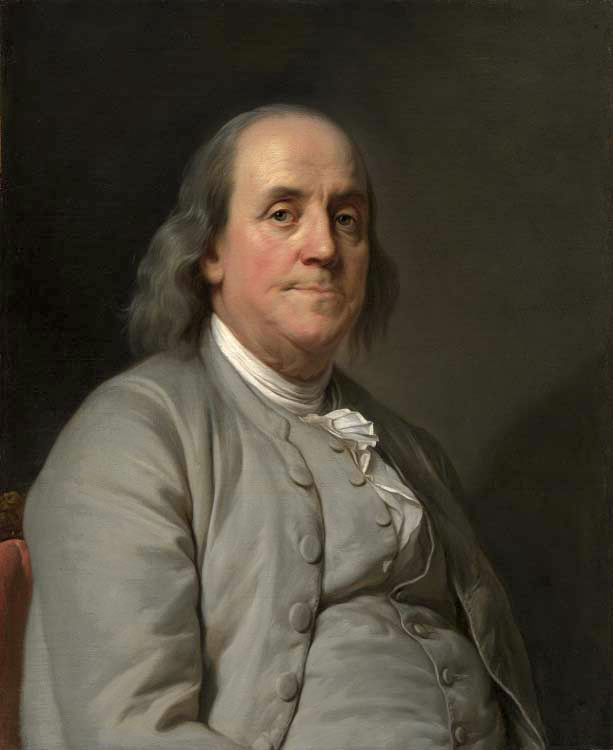
Maybe it’s just me, but I’m beginning to fear that I’m on the edge of a precipice of Accomplishing Quite a Lot, and the thing that is keeping me from that breakthrough is all the time I, yup, waste on social media. Not that there aren’t a few satisfying things about participating with social online, but really - what seems to take the biggest hit is actual creative output.
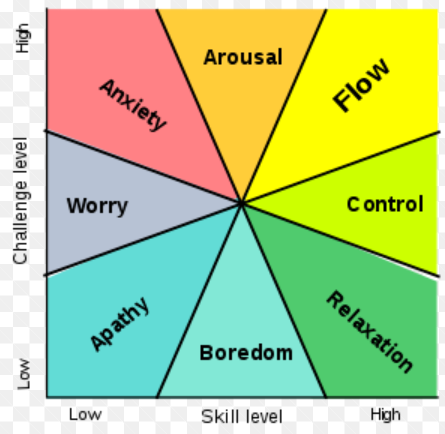
When Mihaly Csikszentmihalyi wrote about “Flow” a few years ago, he reminded us about that creative zone in which great or at least satisfying work takes place, where we are so absorbed in what we’re doing that we lose all track of time. For some of us, even “simple” things like cooking can get us in that zone. But I’m more concerned about what keeps us from ever entering that zone, and I’m starting to believe it’s incessant, mindless use of social media. In other words, I’m outing myself.
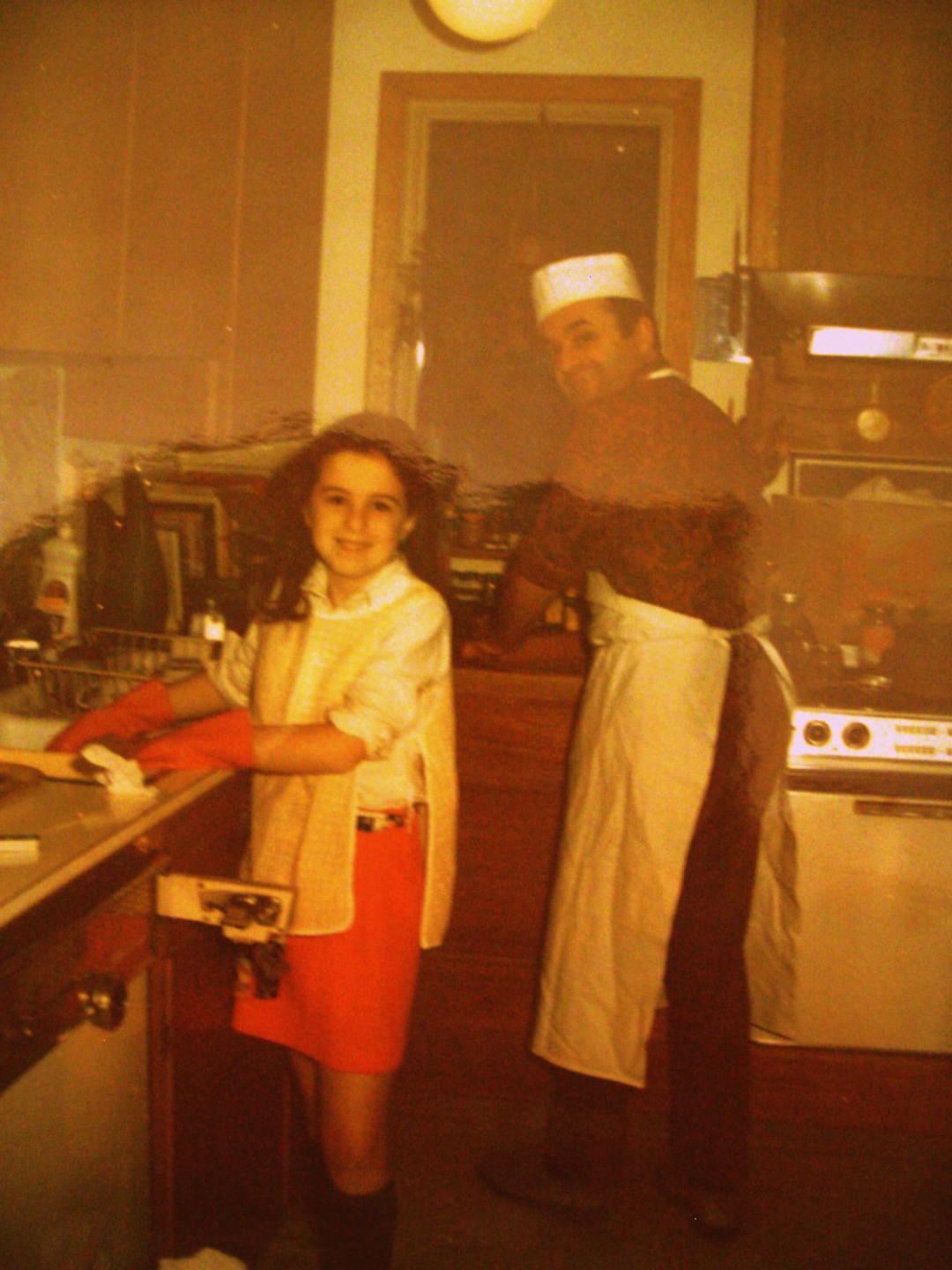
I grew up in a very creative family. During my childhood, my dad worked as a freelance graphic designer, creating Polaroid’s iconic corporate identity (those rainbow stripes!), and in his “spare time” built two houses, learned to bake bread and homemade pizza, wrote, illustrated and published a whole series of great children’s books about Cape Cod, some of which are still in print, started and ran an arts magazine - you get the picture. I seriously wonder how this prodigious output would have suffered if he’d had the Internet and social media to drain off all those creative juices. Would he have managed a viral cat meme or two instead? And how about the comparative life satisfaction of then versus now?
In psychologist Erik Erikson’s famous description of life stages, the ones from middle adulthood on have to with resolving the intrinsic conflicts between polarities such as generativity or stagnation; and ego identity or despair. What this begins to hint at, at least in the way that I interpret it, is the increasing need to “make sense of” our lives as we age. And that brings me back to intentionality, which is the very thing I feel like I’m missing from all the endless moments I fritter away on social media, scrolling through something passively and expecting life to come to me - instead of my creating it.
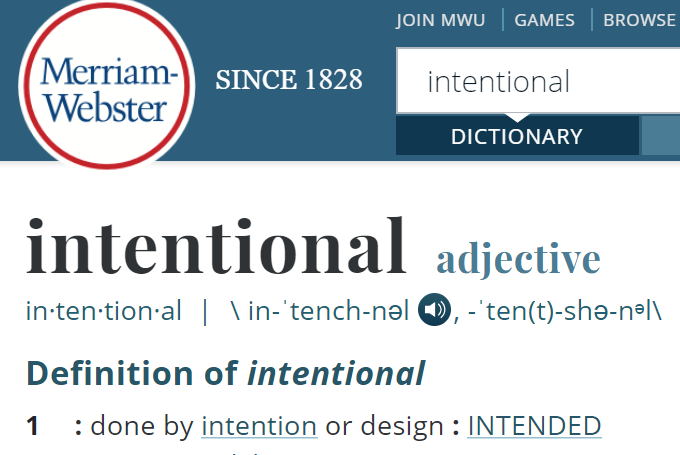
What is it to be intentional? To be deliberate, to consciously decide what you spend your time and energy on, and perhaps why. What I find myself doing instead is its very opposite, mindlessly, un-consciously scrolling really to distract myself. And I have to believe it’s behavior that comes at a price, that price being what I could actually accomplish if I broke with my mindless habit.
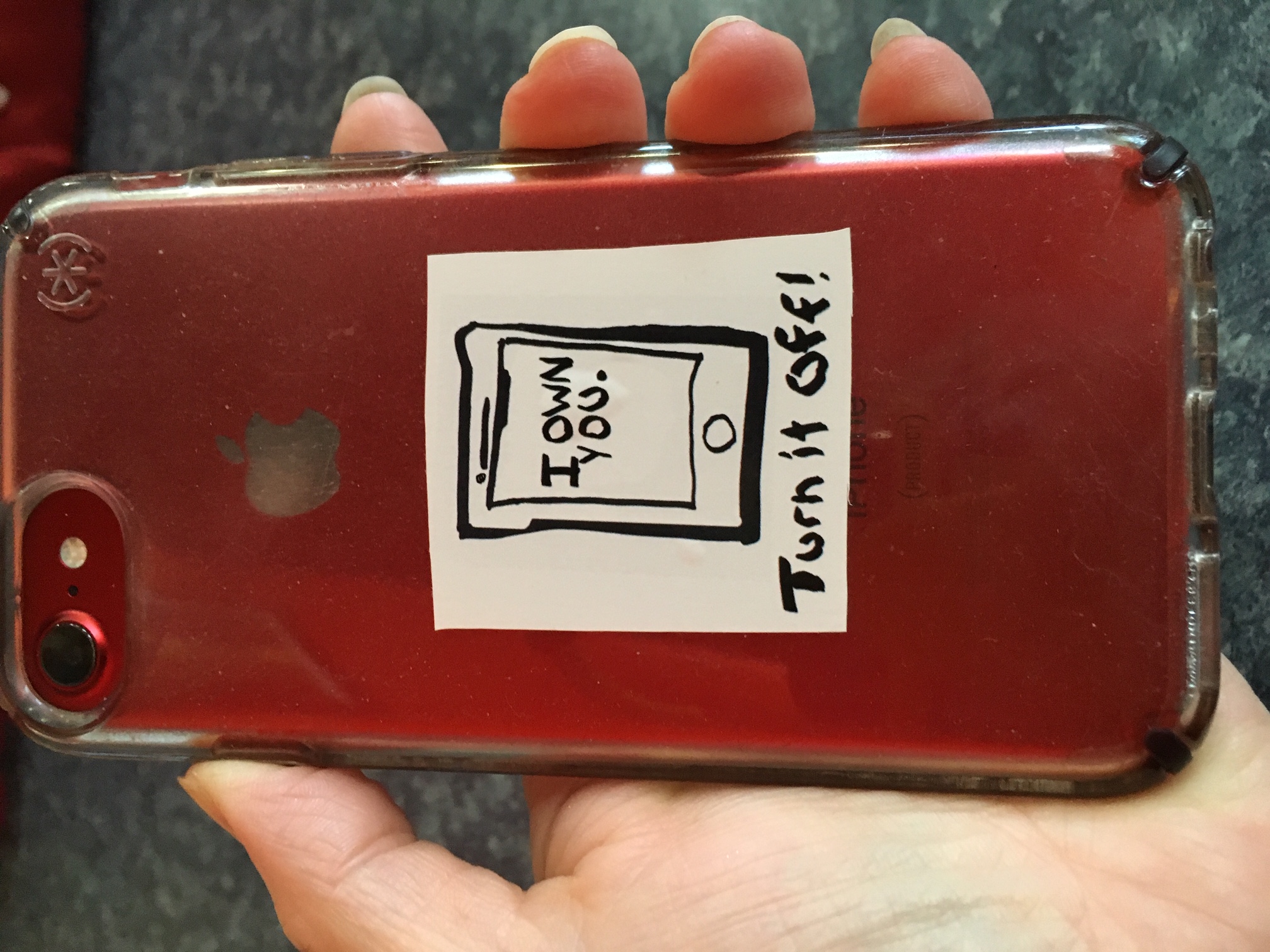
My brilliant friend Susan Price has this on the back of her smartphone. Sticker by Justin Parr. Apparently the sticker used to show a TV, but it’s been updated to reflect our current obsession.
It may be starting small, but I’m contemplating going social media-free on Sundays - just one day a week to see if I can accomplish more of what might actually satisfy, instead of filling up with what amounts to the junk food of social. It’s no longer “sparking joy,” to borrow the phrase from Marie Kondo. So it’s time to see what conscious uncoupling - and more time spent in the flow of creativity - might do instead.

